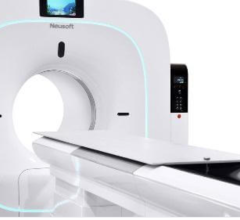April 17, 2014 — ICB Intl. Inc., (ICBI), announced the development of a tracer for imaging alpha-synuclein (a-Syn) in Parkinson's-like mice at the Keystone Symposium for Parkinson disease (PD) in Keystone, Colo. Speaking at the symposium, Dr. Anna Cartier, associate director of ICBI, presented scientific data and showed images for the first successful live visualization of a-Syn in the brains of mice with and without PD usig ICBI's proprietary SMART Molecule Tehnology. ICBI has created an a-Syn-SMART Molecule (a-Syn-SM) that enters the blood stream, passes through the blood-brain barrier (BBB) into the central nervous system (CNS) and latches onto its target, a-Syn.
A-Syn is an important pharmaceutical target for PD. The aggregation and accumulation of misfolded a-Syn constitutes the hallmark of a group of neurodegenerative diseases, referred to as synuceinopathies, including Parkinson's disease. Recently, scientists at the Michael J. Fox Foundation (MJFF) published an article in the Journal of Parkinson's Disease that "the ability to image a-Syn deposition in the brain would be a game changing achievement for the Parkinson's field." ICBI has addressed this challenge in an animal model.
In the study, a live transgenic (Tg) mouse with PD and a normal control were injected with iodine-125 labeled a-Syn-SM in the tail vein. Single photon emission computing tomography (SPECT) was used to visualize a-Syn with the radio-labeled a-Syn-SM in these mice. A-Syn was detected in the brain by radio-labeled SM as early as one hour post injection with continued accumulation of radio-labeled SM in the brain for eight days. These findings, which are consistent with prior results using multiple Tg mice injected with unlabeled a-Syn-SM, strongly support the clinical utility of a-Syn-SM as a SPECT/PET imaging tool for Parkinson's disease.
Delivery of disease modifyng drugs to the CNS has been a problem since the origin of mankind. A physical barrier, the BBB, regulates what goes to the brain. Small molecule drugs that can reach the CNS may provide short-term symptomtic relief but often do nothing to modify the disease. Large moleules that can potentially modify the disease have poor access to the CNS. ICBI is determined to change that with its SMART Molecule technolgy.
"These recent discoveries bring ICBI closer to developing diagnostics and disease modifying therapeutics for neurodegenerative disorders," said founder, Ram Bhatt, Ph.D. He further stated that although these preliminary results are very exciting, there is still a considerable amount of work to be done before this technology will be cleared by the U.S. Food and Drug Administration for use in patients for the early diagnosis and monitoring of disease (synucleinopahies) progression or regression during therapy.
For more information: www.icbii.com


 May 06, 2025
May 06, 2025 








